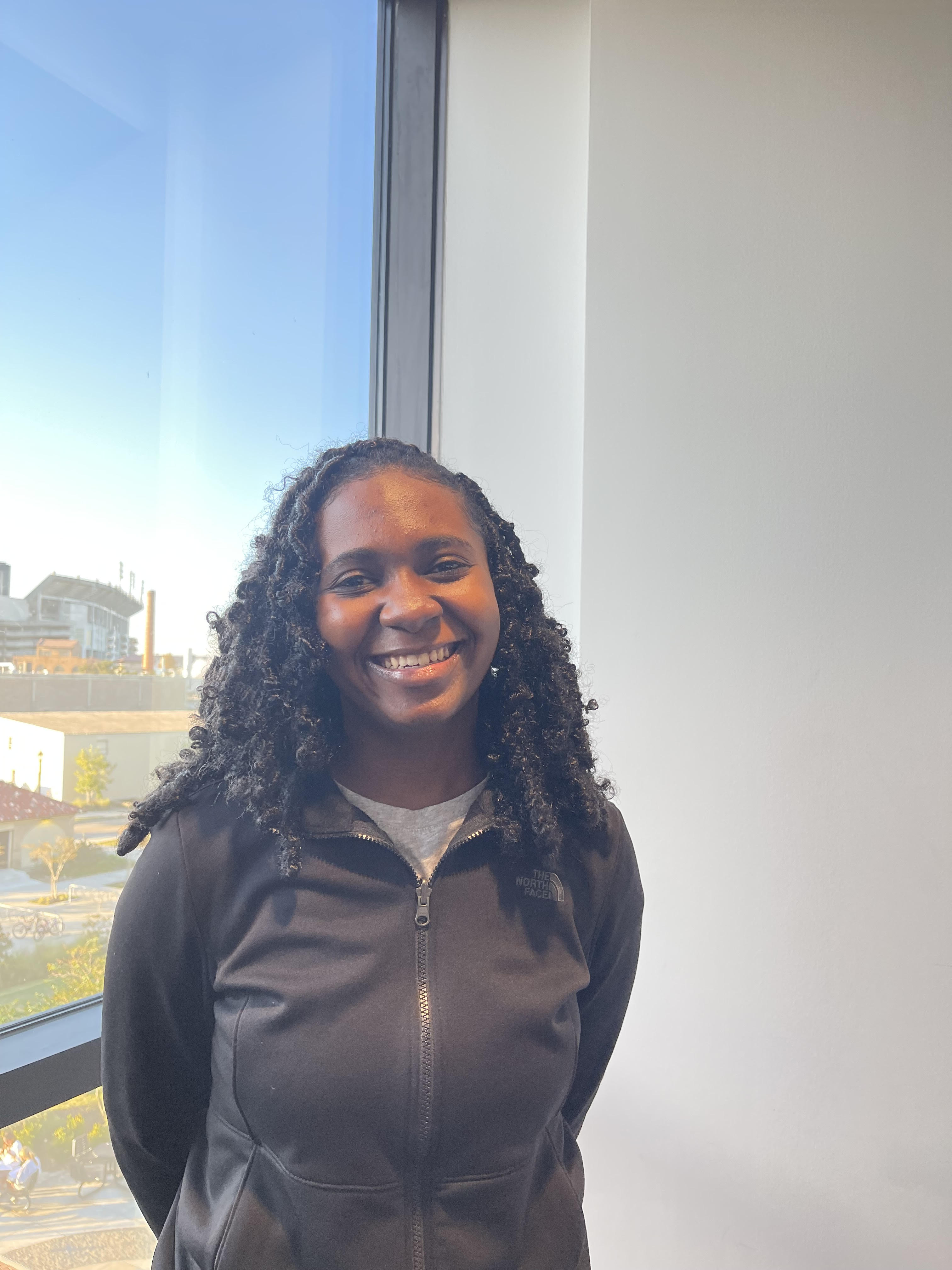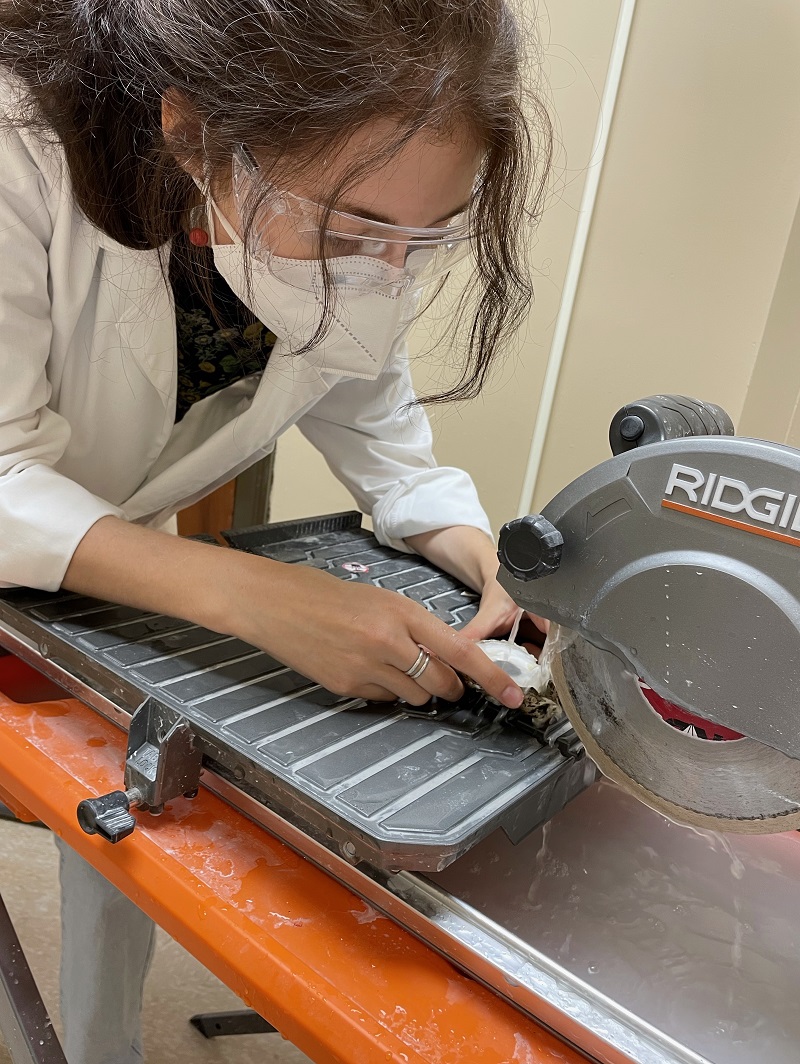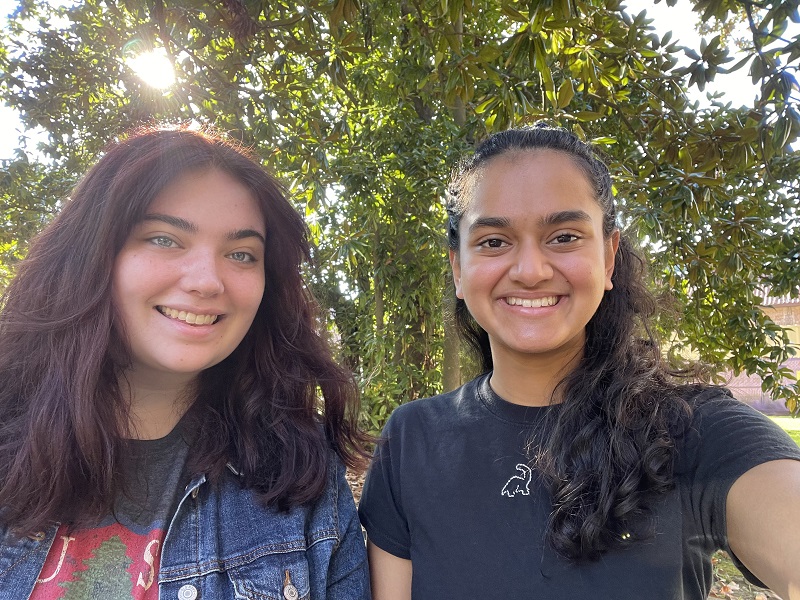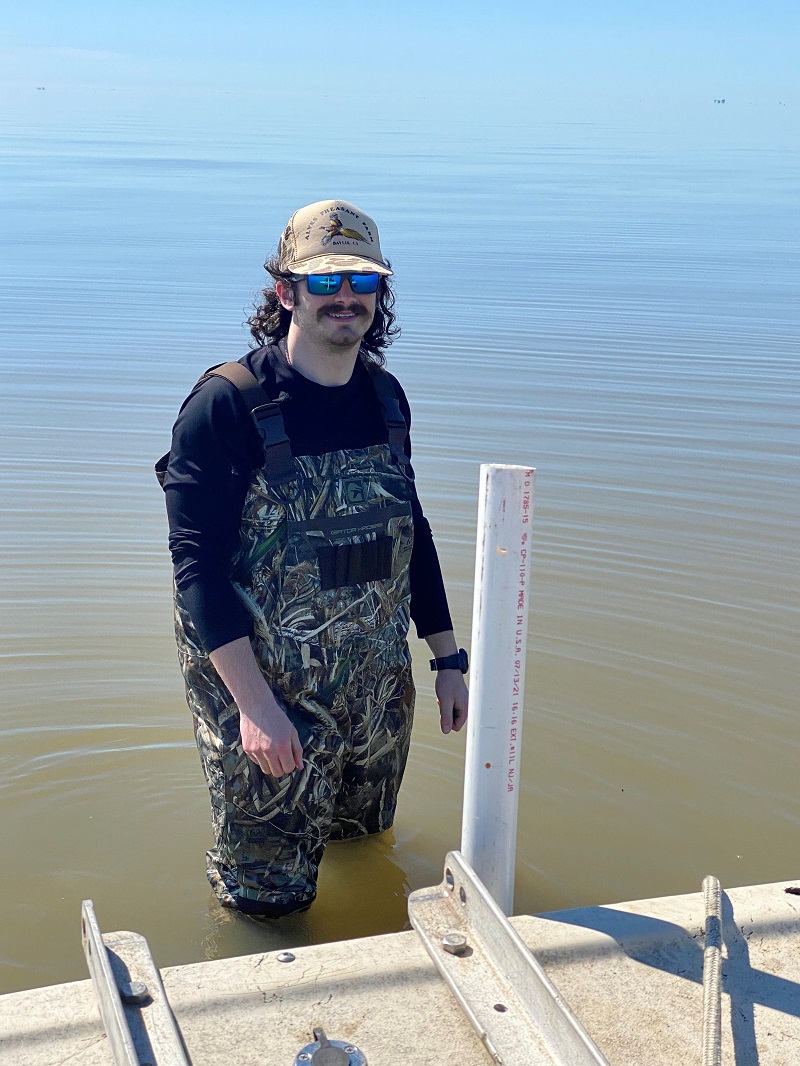Four CC&E Research Projects Receive Spring Discover Grants
February 22, 2022
For nearly a century the LSU College of the Coast & Environment has been at the forefront of coastal and environmental research and education in Louisiana and around the world. The collaborative nature of our work allows us to make crucial connections across disciplines and leads to groundbreaking discoveries. This work continues via the research performed by the students and mentors in our programs and in partnership with other programs across campus and fosters more comprehensive approaches to addressing coastal and environmental challenges in Louisiana and beyond. This spring, four of 20 Discover Grant recipients were from the College of the Coast & Environment. Here is a snapshot of all the CC&E research funded by Spring 2022 LSU Discover grants.
Sustainable Floating Wetland Construction
Mentor: Brian Snyder, Associate Professor, Department of Environmental Sciences
Mentee: Kameelah Hollis (Fairburn, GA), Junior, Coastal Environmental Science
Dr. Snyder and Kameelah are looking into ways using floating, naturally based artificial wetlands to combat climate change and create cleaner water. Wetlands are some of the most productive ecosystems in the world and could be very useful in producing more plants that in turn will capture more carbon, a greenhouse gas that contributes to climate change. However, harvesting wetlands is difficult and creating new wetlands is expensive. But, what if we could create an artificial, floating wetland that would produce more plants and remove impurities from water? While some floating wetlands already exist, they are made of plastic. Kameelah plans to improve on these models and reduce potential microplastic pollution by designing, building, and testing a floating wetland made from bamboo to determine if it can provide a stable platform for wetland biomass growth.
Barium Calcium Ratios in Eastern Oysters (Crassostrea virginica) as a Potential Environmental Proxy: Examining the Effects of Anthropogenic Freshwater Flooding on Development and Mortality of Oysters in the Pontchartrain Basin
Mentor: Kristine DeLong, Associate Professor, Department of Geography & Anthropology
Mentee: Anna Stebbins (New Orleans, LA), Junior, double-majoring in Coastal Environmental
Science and Anthropology
Dr. DeLong and Anna are investigating whether and how oysters chemically record environmental
changes caused by flood-management infrastructure, and how those changes impact oyster
development. As mollusks grow, they accumulate seasonal banding within their shells,
like the rings of a tree. This banding represents a sequential archive of the organism's
life and, in many cases, a chronicle of how they responded to the ambient environmental
conditions they experienced. Anna is analyzing the chemical shifts in the layering
of oysters that lived through Bonnet Carre spillway openings, and therefore likely
experienced freshwater shock. By examining the shells’ layers in respect to what months
the bands represent, and cross referencing that to known salinity monitoring data,
she will be able to determine whether these fluctuations in the oyster shells’ chemistry
can be used to reconstruct and model salinity shifts in estuarine waterways.
Louisiana’s Cancer Alley: The Fight Against Formosa
Mentor: Linda M. Hooper-Bùi, Professor, Department of Environmental Sciences
Mentees: Claire Sullivan (Southbury, CT), Sophomore, Coastal Environmental Science,
and Ria Salway (Katy, TX), Sophomore, Biological Sciences
Starting in the 1950s, as industrial development greatly expanded around Baton Rouge and New Orleans, large petrochemical plants were constructed along the Mississippi River, creating the region known as Cancer Alley. This area is primarily home to low-income communities of color who are facing the environmental and health consequences of living near these plants. Dr. Hooper-Bùi, Claire, and Ria have begun a film project that will document the ongoing methods used by local activists to stop a Formosa Plastics plant from being built in St. James Parish, Louisiana. Formosa Plastics has a history of having lawsuits brought against them for breaking federal pollution guidelines. While national coverage of Cancer Alley primarily focuses on quantitative data that defines cancer risk in the region, this film seeks to capture the personal stories of these communities, told by the residents themselves. They plan to use the film to raise awareness of these issues via film festivals, a screening at LSU, and by providing it for use in classrooms around Louisiana.
This research is a continuation of their Fall 2021 LSU Discover grant project.
Examining the impacts of atmospheric frontal passages on hydrodynamics in a river delta
Mentor: Matt Hiatt, Assistant Professor, Department of Oceanography & Coastal Sciences
Mentee: Jacob Reinhardt (Plaquemine, LA), Senior, Coastal Environmental Science
While the original project intended to analyze how the winds produced by regular winter cold fronts moving across the Louisiana coastline would disrupt water circulation patterns in Barataria Bay, the researchers’ measuring stations were destroyed by Hurricane Ida. As a result, Dr. Hiatt and Jacob have pivoted to a field measurement campaign at Wax Lake Delta aimed at understanding how the winds brought by cold fronts influence water level variations and water velocities in Wax Lake Delta’s inundated wetlands and adjacent channels. Jacob will determine how the winds impact the movement of water from the channels to the wetlands, in addition to examine how the wetland vegetation influences the movement of water before, during, and after storms.
This research is a continuation of their Fall 2021 LSU Discover grant project.


